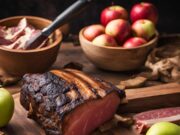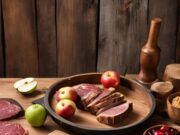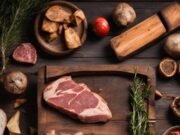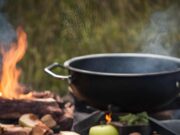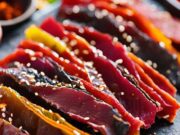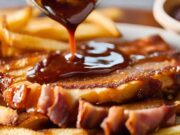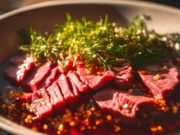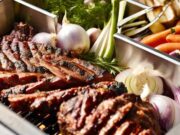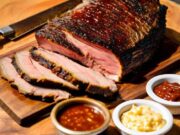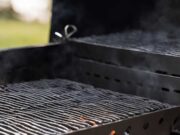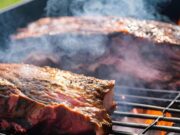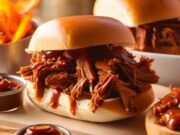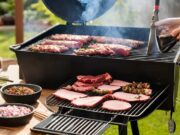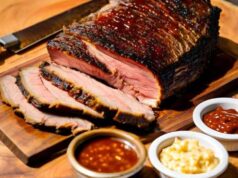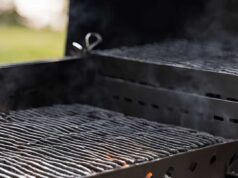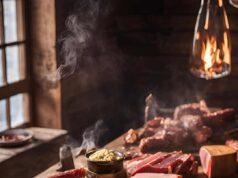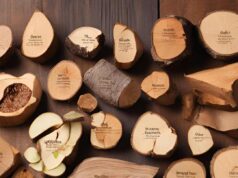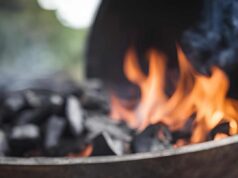When it comes to BBQ, your choice of fuel can significantly impact the flavor, heat, and overall experience.
This discussion will examine the two most popular options: charcoal and wood. Each option presents its own set of benefits and drawbacks, and understanding these factors can enhance your grilling skills.
From flavor profiles to health considerations, this guide will address the essential aspects of selecting the right fuel for your next BBQ endeavor.
Key Takeaways:
- Charcoal and wood both have unique benefits and drawbacks for grilling, from flavor profiles to ease of use.
- Combining charcoal and wood can create a unique and enhanced flavor for your BBQ dishes.
- Consider health and environmental factors when choosing between charcoal and wood as your BBQ fuel option.
Benefits and Drawbacks of Charcoal Grilling
Charcoal grilling is a widely adopted method among BBQ enthusiasts, recognized for its capacity to provide a unique smoky flavor and high, consistent heat. This makes it particularly suitable for cooking a variety of meats, such as pork and shrimp.
Benefits and Drawbacks of Wood Grilling
Wood grilling provides a unique and aromatic experience that can significantly enhance your BBQ endeavors. Different types of wood offer distinct flavors that infuse into grilled meats and vegetables, creating a rich smoke that is difficult to replicate with other fuel sources. For more information on choosing between charcoal and wood for your BBQ, check out this insightful article.
Embracing wood grilling can truly elevate your culinary skills and provide an exceptional flavor profile to your grilled dishes.
Comparative Analysis: Charcoal vs Wood
When comparing charcoal and wood, it is essential to analyze various factors, including flavor profiles, burn time, and ease of use. Each of these elements can significantly influence your grilling experience and the final outcome of your BBQ dish.
Flavor Profiles
The flavor imparted by charcoal and wood can vary significantly, with charcoal providing a robust smoky backdrop while different wood types infuse unique aromatic elements into grilled meats and vegetables.
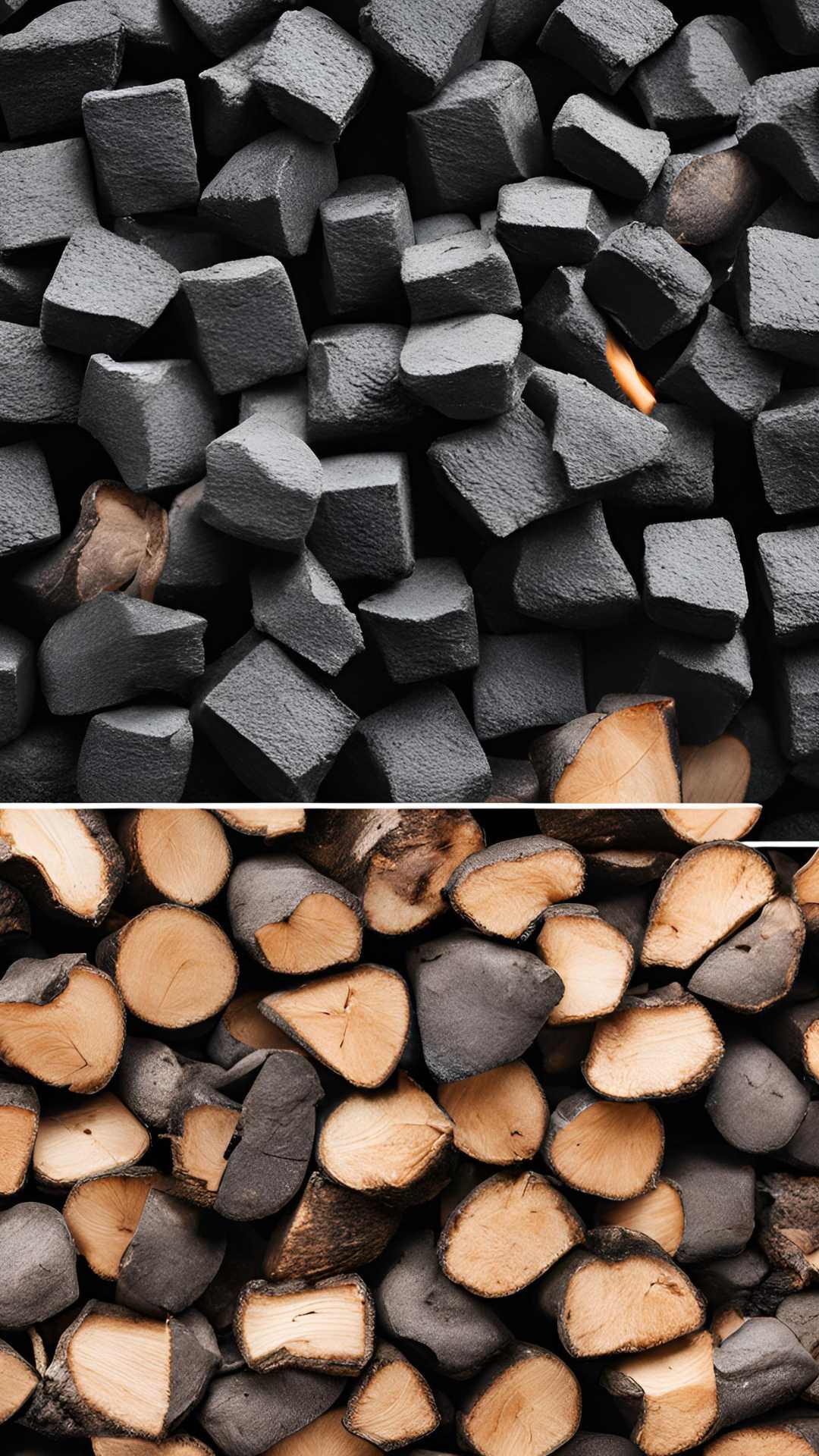
For example, utilizing hickory can introduce a strong, bacon-like flavor that beautifully complements pork ribs, while mesquite offers an intense, earthy essence ideal for thick cuts of beef, enhancing their rich, savory profiles. Conversely, fruitwoods such as apple and cherry provide sweeter, lighter notes that are perfect for poultry and fish, bringing out subtle sweetness that pairs wonderfully with marinades and dry rubs.
Incorporating seasonings like garlic and pepper can further elevate these flavors, making each BBQ dish distinct and mouthwatering, whether it’s a smoky brisket or a herb-rubbed chicken. Understanding these subtle nuances can transform a simple grilling session into a flavorful culinary experience.
Burn Time and Heat Output
Understanding the burn time and heat output of charcoal and wood is essential for mastering your grilling technique, as both factors can influence cooking times and the overall quality of your BBQ meals.
Each type offers its unique advantages and challenges regarding temperature management and flavor infusion. Charcoal typically burns hotter and more consistently, making it an ideal choice for high-temperature grilling techniques, especially for steaks or burgers that require searing to lock in juices. Conversely, wood provides a more complex flavor profile with varying burn rates, which can be advantageous for slow-cooking methods like smoking ribs or brisket.
Being aware of when to adjust the air supply or add more fuel can significantly impact the outcome, resulting in perfectly cooked, flavorful meat that leaves a lasting impression.
Ease of Use
The ease of use associated with charcoal and wood can significantly impact your grilling experience, as each option has its own set of requirements tailored to different levels of BBQ enthusiasts.
If you appreciate the traditional smoky flavor, wood may require more preparation on your part, including selecting the appropriate type, soaking it if necessary, and allowing it to ignite properly. On the other hand, charcoal is often lauded for its convenience; it can ignite quickly with lighter fluid or a chimney starter, making it an ideal choice for those who prefer a straightforward setup.
While monitoring cooking times and temperatures is crucial for both methods, charcoal grills excel at maintaining consistent heat, which simplifies the management of both direct and indirect cooking styles.
Additionally, each option necessitates specific equipment suited to the method, whether it’s a charcoal grill with adjustable vents or a smoker designed for wood chunks, allowing you to tailor every grilling session to your personal preferences.
Combining Charcoal and Wood for Enhanced Flavor
For individuals aiming to elevate their BBQ skills, combining charcoal and wood can significantly enhance the grilling experience. This method unites the intense heat of charcoal with the rich flavors imparted by wood smoke. Learn more about the debate between Charcoal vs. Wood.
Employing this technique ensures an even cooking temperature while infusing a variety of meats—such as succulent ribs, tender briskets, and juicy chicken—with unique smoky undertones. By experimenting with different wood varieties, such as hickory for its robust flavor or applewood for a milder sweetness, you can add a distinctive touch to your recipes.
A balanced ratio of charcoal to wood is often recommended at approximately 70% charcoal and 30% wood. This combination helps achieve an ideal blend, allowing the wood to smolder rather than burn.
Additionally, techniques like placing the wood on top of the hot coals or utilizing wood chips in a smoker box can produce excellent results, enhancing the depth of flavor in every bite.
Health and Environmental Considerations
As BBQ enthusiasts become increasingly health-conscious and environmentally aware, it is essential for you to consider the health implications and environmental impact of using charcoal versus wood for grilling.
Both grilling options present distinct advantages and drawbacks that can significantly affect your well-being and commitment to sustainability. Exposure to smoke from charcoal can lead to respiratory issues and elevate the risk of certain diseases, while wood smoke contains compounds that may also pose health risks.
From an environmental perspective, adopting sustainable practices is crucial. Sourcing wood from responsibly managed forests can help mitigate the carbon emissions associated with grilling. By choosing eco-friendly options, such as sustainably produced charcoal and natural fire starters, you not only create a cleaner grilling experience but also align with a commitment to healthier cooking practices that respect our planet.
Frequently Asked Questions
What is the main difference between charcoal and wood for BBQ?
Charcoal is made from compressed wood or other organic materials, while wood is in its natural form. Charcoal burns hotter and cleaner, while wood gives a smokier flavor.
Which one is better for grilling, charcoal or wood?
It depends on personal preference and the type of food being grilled. Charcoal is better for high heat cooking, while wood adds a distinct smoky flavor to meats and vegetables.
Is charcoal or wood more cost-effective for BBQ?
Charcoal is usually less expensive than wood, especially if you buy it in bulk. However, if you have access to free wood, it can be a more cost-effective option.
Which one is easier to use, charcoal or wood?
Charcoal is generally easier to use for grilling, as it is readily available and prepackaged for convenience. Wood, on the other hand, may require more prep time and expertise to properly use for BBQ.
Does the type of meat being cooked affect which fuel is best?
Yes, the type of meat being cooked can play a role in choosing between charcoal and wood. For example, charcoal may be better for cooking delicate meats that require high heat, while wood is better for meats that can benefit from a smoky flavor.
Can I mix charcoal and wood for my BBQ?
Absolutely! In fact, many BBQ enthusiasts use a combination of both charcoal and wood for the best of both worlds – high heat from charcoal and smoky flavor from wood.



